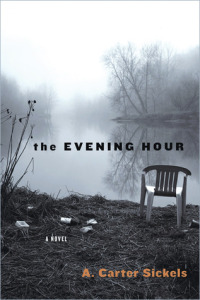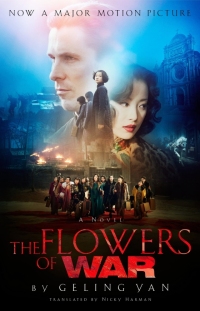Kurt Vonnegut: The Last Interview by Kurt Vonnegut et al.
 Monday, January 16, 2012 at 8:08AM
Monday, January 16, 2012 at 8:08AM Published by Melville House on December 16, 2011
Kurt Vonnegut's last interview was fairly short, not nearly long enough to fill a book. It is joined in this volume with five other interviews that span thirty years. Not surprisingly, this leads to some redundancy; Vonnegut liked to tell the same stories and interviewers tended to ask the same questions (who wouldn't, after all, want to ask Vonnegut about the firebombing of Dresden?). Vonnegut discusses his family in nearly every interview; at least four times we hear that his brother patented the process for making rain with silver iodide. On the other hand, we hear almost nothing about the bulk of his fiction, an omission I found disappointing.
The first interview is actually a compilation of four separate interviews that were cobbled together by Vonnegut himself and published in The Paris Review in 1977. Vonnegut talks about his service in World War II, his imprisonment by the Germans in Dresden, and, in general terms, his writing. My favorite quotation from that interview (responding to critics who considered him "barbarous" because he studied chemistry and anthropology rather than classic literature): "I think it can be tremendously refreshing if a creator of literature has something on his mind other than the history of literature so far."
The second interview was published in The Nation in 1980. It focuses on the firebombing of Dresden (the subject of Slaughterhouse-Five) and on nuclear weapons (featured in Cat's Cradle). Vonnegut's most interesting thought concerns his belief that most people lack enthusiasm for life.
A Playboy interview from 1992 -- the best in the book and the most overtly political -- pairs Vonnegut with Joseph Heller. The discussion is wide ranging and features a fair amount of literary (and non-literary) name dropping. Heller and Vonnegut were both World War II veterans; Vonnegut makes some interesting points about the difference between that war and the bombing in the first Iraq war (including the observation that WWII soldiers hoped they didn't have to kill anyone while modern bomb droppers tend to have no such qualms). Here's Vonnegut on censorship and the First Amendment, a statement I applaud: "your government is not here to keep you from having your feelings hurt."
A 2006 interview from Stop Smiling is notable for Vonnegut's discussion of the artwork he did in collaboration with Joe Petro (he saw it as "protesting the meaninglessness in life"). It also updates his political thinking (suffice it to say that he wasn't optimistic about the direction in which the country was moving). Vonnegut saw the extended family as a solution to the nation's problems, but given the impracticality of the extended family in modern America, he advocated having fun. His most telling statement: "I've said everything I want to say and I'm embarrassed to have lived this long."
A condensation of four interviews between 2000 and 2007 (the last a month before his death) is more of the same, but I was struck by how such a big-hearted man, so in love with people despite his continual disappointment in their actions, was so gloomy about his own existence. In a comment worthy of Mark Twain (with whom he had much in common), Vonnegut said: "As you may know, I'm suing a cigarette company because their product hasn't killed me yet."
The final interview, two months before Vonnegut's 2007 death, appeared in In These Times, for which Vonnegut occasionally wrote. Vonnegut was not well; consequently, the interview is very brief. He discusses religion (Vonnegut was a humanist who came from a family of freethinkers) and politics, including a very funny letter he wrote to Iraq describing the path it should follow on the way to becoming a democracy.
Vonnegut was a national treasure. His fans will surely enjoy these interviews, but those who are looking for insight into his thinking beyond his novels might want to pick up his various books of essays, which capture his worldview in greater depth, including his last, A Man Without a Country.
RECOMMENDED



